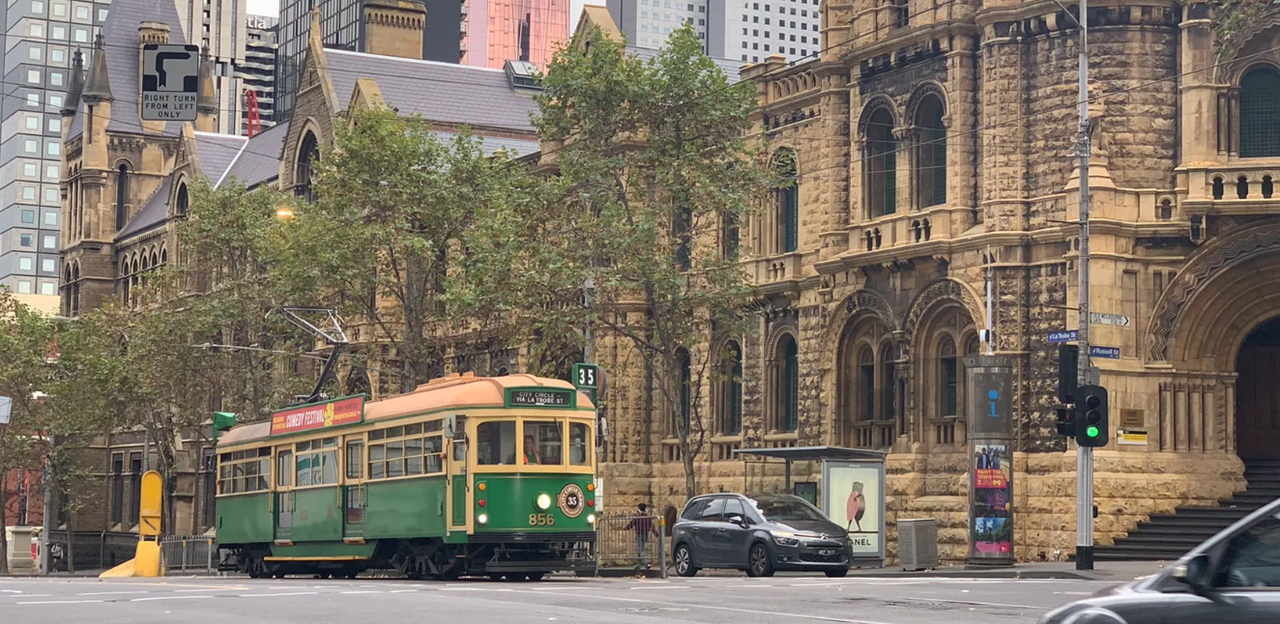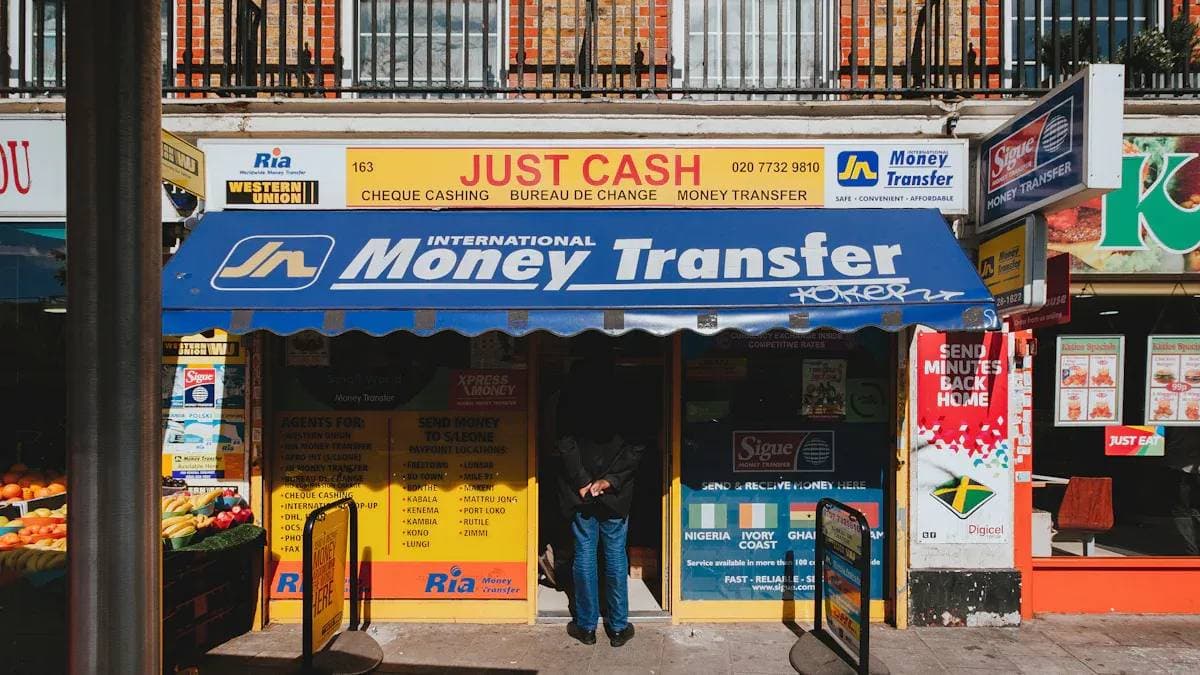- EasyCard
- Trade
- Help
- Announcement
- Academy
- SWIFT Code
- Iban Number
- Referral
- Customer Service
- Blog
- Creator
Australia Overseas Work Visa Explained: How to Apply for a Work Visa and Enter Australia Smoothly
Australia, with its abundant job opportunities, great living environment, and friendly immigration policies, has become an attractive destination for overseas workers worldwide. In recent years, with the increasing demand for foreign labor in Australia, more and more people are choosing to work abroad in Australia, seeking new opportunities for career development and a better life. However, applying for an Australian work visa is a relatively complex process, requiring applicants to understand different types of visas, eligibility requirements, and corresponding procedures.

This article focuses on how to apply for an Australian work visa and enter the country smoothly. It aims to help potential applicants understand the types of overseas work visas, the application steps, and important considerations, supporting them in successfully starting their work journey in Australia.
Types of Australian Work Visas
Before applying for an Australian overseas work visa, understanding the different types of visas is crucial. The Australian government provides various types of work visas based on applicants’ skills, work experience, and employer needs to meet the demands of different industries and professions. Below are some common types of Australian work visas:
Temporary Skill Shortage Visa (TSS 482) The TSS 482 visa is for foreign workers sponsored by Australian employers, usually for two to four years. Applicants must have work experience and skills relevant to the nominated position and meet certain English language requirements. The TSS 482 visa is one of the most common ways for overseas workers to enter Australia, particularly for skilled positions in short supply in the Australian labor market. Nominated positions: These include roles such as software engineers, registered nurses, and other skilled occupations in demand in Australia.
Working Holiday Visa (WHV 417) The Working Holiday Visa, also known as the 417 visa, is for young people aged between 18 and 30. This visa allows holders to stay in Australia for up to 12 months, enjoying short-term work and travel opportunities. For young people looking to work overseas, this is a great way to experience life in Australia and gain work experience, especially suitable for recent graduates and those exploring career options. Types of work: This can include tourism, hospitality services, and farm work, aimed at providing young people with an opportunity to experience Australian life.
Employer Nomination Scheme Visa (ENS 186) The ENS 186 visa is for overseas workers who have been permanently employed by an Australian employer. Through this visa, applicants can obtain permanent residency in Australia. This visa requires that the applicant’s occupation is on the Australian Skilled Occupation List, and the employer must be eligible to sponsor and demonstrate a genuine intent to employ the applicant long-term. This visa is highly attractive for overseas workers looking to develop their careers in Australia in the long term. Nominated positions: Roles such as engineering managers, accountants, etc., require the applicant to have relevant qualifications and substantial work experience.
Skilled Independent Visa (SI 189) The Skilled Independent Visa is a visa that does not require employer sponsorship and is for workers who have skills and work experience that are in high demand in Australia. Applicants need to pass a points test (based on age, education, English proficiency, etc.) and achieve the minimum required score. This visa provides permanent residency to holders and is an important choice for overseas workers seeking a stable life and career development. Nominated positions: Roles like electrical engineers, ICT specialists, etc., require applicants to undergo a skills assessment to confirm that their skills meet the required standards.
These visa types are the most common and suitable for different skill types. Applicants can choose the appropriate visa type based on their personal circumstances, ensuring they meet the specific requirements of the nominated position and English proficiency to increase the chances of a successful visa application.
Basic Conditions for Visa Application
To apply for an Australian work visa, applicants must meet a range of basic conditions, including age limits, educational and work experience requirements, as well as assessments of language proficiency, health, and character.
Temporary Skill Shortage Visa (TSS 482) Age and Education: There are usually no specific age limits, but applicants must have professional qualifications related to the nominated position. Work Experience: Generally, applicants need at least two years of experience relevant to the nominated position. English Requirements: Applicants must have an IELTS overall score of at least 5.0, with no band below 4.5, to ensure they can cope in an Australian work environment.
Working Holiday Visa (WHV 417) Age: Applicants must be between 18 and 30 years old (extended to 35 for some countries). Education: No specific educational requirements, suitable for young people wanting to experience overseas work. English Requirements: No strict language requirements, but basic English communication skills are helpful for living and working in Australia.
During the application preparation, managing cross-border payments may become an important aspect, especially for visa fees and health check costs. BiyaPay, a multi-asset wallet, offers a secure and convenient solution. With BiyaPay, you can access local transfer services in most parts of the world, with fees as low as 0.5%, and same-day transfers. For those using digital currencies, BiyaPay also supports real-time exchanges to major fiat currencies like USD and GBP, making cross-border remittances and fund management easier and safer.
Employer Nomination Scheme Visa (ENS 186) Age: Applicants must be under 45 years of age, with some exemptions for those with high incomes. Education and Work Experience: Applicants must have qualifications relevant to the nominated position and at least three years of work experience. English Requirements: IELTS scores of at least 6.0 in each band, or equivalent scores in other language tests (e.g., TOEFL iBT 60+), ensuring effective communication with colleagues and clients.
Skilled Independent Visa (SI 189) Age: Applicants must be under 45 years old. Education and Work Experience: Applicants need to undergo a skills assessment to confirm that their qualifications and skills meet the requirements of positions on Australia’s Skilled Occupation List. English Requirements: IELTS scores of at least 6.0 in each band to ensure fluent living and working in Australia. Applicants also need to meet the minimum score in Australia’s immigration points system, usually 65 points, based on age, education, language ability, and work experience.
Detailed Visa Application Process
Choosing the Right Visa Type Applicants first need to choose the most suitable visa type based on their skills, work experience, and expected work duration in Australia. For example, young people may opt for the Working Holiday Visa (WHV 417), while skilled professionals employed by Australian employers might choose the TSS 482 or ENS 186 visas.
Online Application Platform (ImmiAccount) The Australian government provides a one-stop online application platform called ImmiAccount, where all applicants need to register and submit visa applications. Through this system, applicants can manage their application progress, submit documents, and pay related fees conveniently.
Register an Account: Applicants first need to create an account on the ImmiAccount platform and provide basic personal information.
Select Visa Type: After logging in, choose the appropriate visa type and fill out the application form.
Preparation of Application Materials To complete the application process smoothly, applicants need to prepare the following materials:
Passport: A valid passport is essential for the application.
Educational and Work Proof: Relevant educational certificates and work experience documentation (e.g., reference letters, employment contracts) corresponding to the visa type.
English Proficiency Proof: For visas that require language proof (such as TSS 482 or ENS 186), applicants need to provide IELTS or other recognized test scores.
Health Check: Applicants must undergo a health examination designated by the Australian government to meet health requirements.
Police Clearance Certificate: Applicants need to provide police clearance certificates from all countries they have lived in for the past ten years.
Submission of Application and Fee Payment After completing the application form and preparing all necessary materials, applicants need to submit their application online and pay the relevant fees. Visa application fees vary depending on the visa type, generally ranging from several hundred to several thousand Australian dollars.
Submit Application: Upload all documents to ImmiAccount and confirm the information before submitting.
Fee Payment: Pay the visa application fee through ImmiAccount and receive a payment receipt.
Waiting for Approval and Notification of Results After submitting the application, applicants need to wait for the Australian Department of Home Affairs to process it. Processing times vary by visa type and individual circumstances, ranging from weeks to months. Applicants can check the status of their application through ImmiAccount at any time.
Additional Material Requirements: Sometimes, the immigration office may request additional information or documents from applicants, which should be provided promptly to avoid delays.
Approval and Refusal Notices: If the visa application is approved, applicants will receive an electronic visa approval letter; if refused, they will receive the reasons for rejection and possible ways to appeal.
For applicants wishing to enter Australia with their work experience, skills, and career development, choosing the right visa type is crucial. Whether you are a young person looking to experience Australian life in the short term or a skilled worker aiming for long-term development, Australia’s diverse visa types offer corresponding solutions to meet different needs.
Applicants should pay particular attention to details such as language requirements, work experience verification, and health checks, as these are key factors for successful visa approval. It is advisable to plan ahead, use the ImmiAccount platform for application submission, and ensure that all steps are completed as required to significantly increase the chances of visa approval.
*This article is provided for general information purposes and does not constitute legal, tax or other professional advice from BiyaPay or its subsidiaries and its affiliates, and it is not intended as a substitute for obtaining advice from a financial advisor or any other professional.
We make no representations, warranties or warranties, express or implied, as to the accuracy, completeness or timeliness of the contents of this publication.




Contact Us
Company and Team
BiyaPay Products
Customer Services
is a broker-dealer registered with the U.S. Securities and Exchange Commission (SEC) (No.: 802-127417), member of the Financial Industry Regulatory Authority (FINRA) (CRD: 325027), member of the Securities Investor Protection Corporation (SIPC), and regulated by FINRA and SEC.
registered with the US Financial Crimes Enforcement Network (FinCEN), as a Money Services Business (MSB), registration number: 31000218637349, and regulated by FinCEN.
registered as Financial Service Provider (FSP number: FSP1007221) in New Zealand, and is a member of the Financial Dispute Resolution Scheme, a New Zealand independent dispute resolution service provider.




















